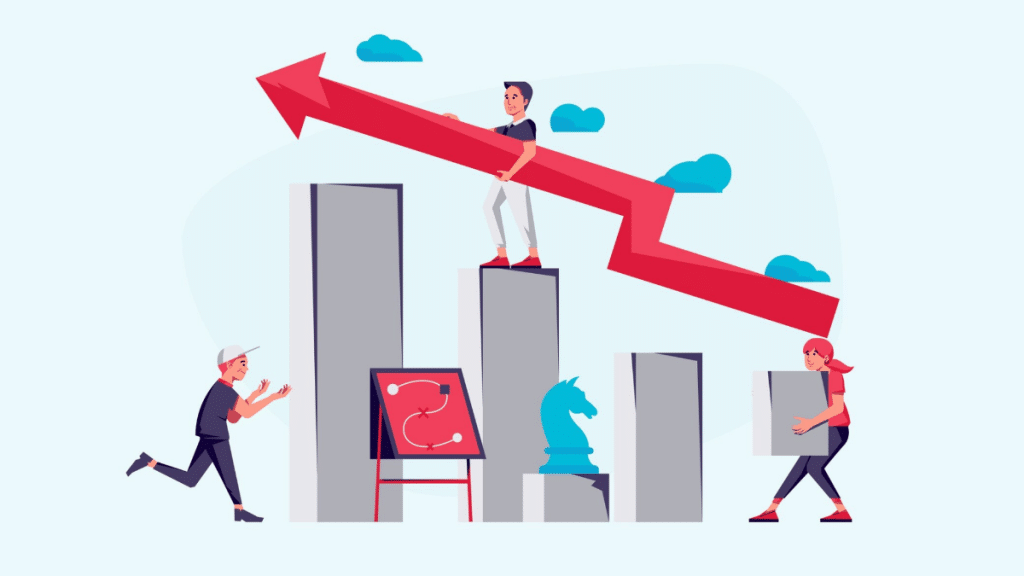When times get tough, pooling your resources is a wise idea. That can mean scaling down your business to a more manageable size.
Getting to the top is great, but once you get there, there is only one other direction which your company can go in. Businesses rise and fall every day, so understanding how to scale to fit your operations is a key tool for business agility and long term success. If you can stop spending to match a temporary lack of production then your business has greater longevity. Only businesses which respond to market demand will ever make it long enough to gain the coveted ‘established in xxx’ title.
Why Scale Down Your Business?
There are many reasons, some of which we can’t even perceive yet. Covid, for example, grounded hundreds of thousands of businesses because they could not survive in the high street. Those businesses who scaled down to respond to the lack of demand did well in the preservation stakes.
A recession might force you to scale down your business. High tax rates could surprise you one year, or maybe your sales depend on crop stability. In any event, you should try to scale down before you give up entirely. Mastering the scaling technique could save your business from bankruptcy by increasing responsiveness and corporate agility… just as we saw during the pandemic.
Remember: scaling down does not have to be a permanent move. Instead, use it as a method of survivalism when times get tough. You can always cale up again when times are better.
Signs that it is Time to Scale Down Your Business
So how do you know when it is time to start that scaling process? The following signs might give you clues as to when to start. Scale down too late and it won’t be enough, scale up too early and you damage your own profits. Getting it just right is the Goldilocks of scalability. These signs should help you spot when it’s time.
Revenue Levels Out Then Drops
No business goes from full strength to no strength overnight. There are clues about a coming downfall. Usually this begins with a sort of stagnancy. There is the sense of having achieved everything that you can at your current size and production capacities. Sales will plateau and revenue will either suddenly or gradually fall.
You Lose More Than You Make
Any keen business would use saved funds to keep itself afloat for the first few months of operating at a loss. However, you will hit a level where you are losing more than you are putting in. Once you start losing more than you are making, you are in the danger zone. If you do not scale down quickly you risk running out of your backup income streams. Once that happens it may be too late to implement the cost-saving changes that come with a smaller sized business.
Production Exceeds Demand
In fact, as soon as you notice that production is exceeding demand, you must take note and pay attention. From there, give yourself a set time limit to turn things around and set a goal you’d like to achieve by then. If you don’t turn it around or achieve your goal in that period, it is time to scale down.
User Engagement has Dipped
It’s not just about sales. Any good manager knows that engagement is the real tell of a business’s longevity. If you have low income and high engagement then you are halfway there. All you need to do is fine tune your service or products until that engagement generates leads. When those leads stop coming though, it is time to think about scaling down.
Your Reputation Suffers
If you start to hear vocal customer complaints about your inability to meet their needs, this is a clue that you may need to scale. This works for scaling up as well as scaling down. If your products are not trendy, if you have a high staff turnover, or if there are data breaches in your business and your reputation suffers as a result, scaling down to come back stronger later on is no bad idea.
Is it time to Scale Down?
Are you noticing any of the above signs in your business? If so, then scale down before you run out of cash flow. Sure, you can borrow against your losses for a short time, but long term it is inefficient. Downscale your plans and live to fight another day. Because a recession, a pandemic, or any other surprise, doesn’t have to be the end of your business.
